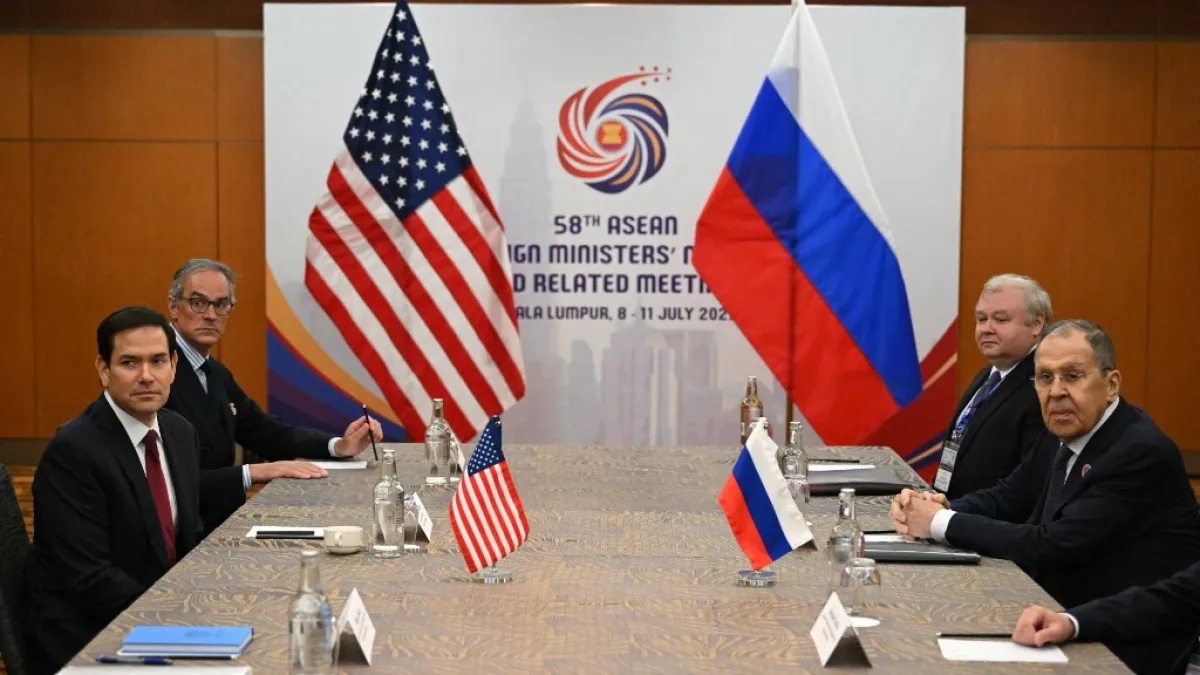In a rare diplomatic engagement amid escalating geopolitical tensions, Russian Foreign Minister Sergey Lavrov and U.S. Secretary of State Marco Rubio met face-to-face on the sidelines of the ASEAN summit in Kuala Lumpur, Malaysia, on Thursday, July 10, 2025.
Their discussions covered a wide range of high-stakes issues.
These include the war in Ukraine, ongoing concerns in Iran and Syria, and the overall deterioration of U.S.-Russia relations.
According to a statement released by Russia’s Foreign Ministry, the two diplomats engaged in a “substantive and frank exchange” on:
- the conflict in Ukraine,
- nuclear developments surrounding Iran, and,
- the humanitarian crisis in Syria.
The meeting, lasting nearly 50 minutes, comes at a critical juncture as both countries navigate an increasingly fragmented international landscape.
While military and political tensions remain high, both Lavrov and Rubio reportedly signaled a willingness to revive dialogue and reduce friction in areas beyond immediate conflict zones.
The Russian Foreign Ministry characterized the talks as “constructive.”
It noted that both sides expressed interest in restoring economic ties, improving humanitarian cooperation, and encouraging unrestricted interaction between Russian and American societies.
“The conversation highlighted a mutual interest in identifying peaceful solutions to current global conflicts and resuming meaningful bilateral cooperation,” the ministry added.
Speaking after the meeting, Rubio described the exchange as “frank and important”, stressing the need for concrete movement toward ending the war in Ukraine.
“We need to see a roadmap for how this conflict can conclude,” Rubio said during a press briefing. He also reiterated the U.S. position that Russia must show more flexibility if progress is to be made.
Rubio conveyed President Donald Trump’s increasing frustration with Russian President Vladimir Putin, whom Trump has accused of obstructing peace efforts.
“President Trump is disappointed with the current trajectory.
“Frankly, he believes Putin is throwing a lot of ‘nonsense’ at efforts to end this war,” Rubio stated.
He referenced Russia’s reluctance to negotiate terms acceptable to both Ukraine and Western allies.
No formal agreements emerged from the talks.
On the other hand, the meeting itself represents a rare moment of direct diplomacy between two of the world’s most powerful, and increasingly adversarial—nations.
Since the onset of Russia’s invasion of Ukraine in February 2022, formal dialogue between Washington and Moscow has been largely limited to emergency communication channels and backdoor diplomacy.
Lavrov, for his part, emphasized the importance of sustained engagement, even as differences remain sharp.
Russian officials suggested that such talks could pave the way for more frequent diplomatic contact in the future.
The encounter took place within the broader context of the Association of Southeast Asian Nations (ASEAN) summit, one of the few remaining international platforms where U.S., Russian, and Chinese officials continue to engage directly.
The summit’s inclusive framework has increasingly served as neutral ground for conversations among global rivals, especially as polarization deepens across the West and the Global South.
Rubio also hinted at the possibility of a meeting with Chinese Foreign Minister Wang Yi, saying, “We’re working on it, maybe, maybe we’ll meet.”
This would further highlight ASEAN’s emerging role as a key arena for diplomacy in an otherwise fragmented international order.
Global observers note that even limited engagement between Washington and Moscow could have ripple effects.
This is particularly if it leads to a de-escalation in Ukraine or improved coordination on non-proliferation and humanitarian concerns in the Middle East.
Despite the modest tone of Thursday’s meeting, analysts are watching closely for signs that dialogue between Russia and the United States, two nuclear-armed states with diverging worldviews, can be maintained, or even expanded.
This is especially at a time of unprecedented global instability.
Whether the Lavrov-Rubio exchange marks the beginning of a new diplomatic track or merely a brief pause in ongoing hostilities remains to be seen.
But for now, the conversation itself signals a tentative, if fragile, step back toward engagement in a deeply divided world.







